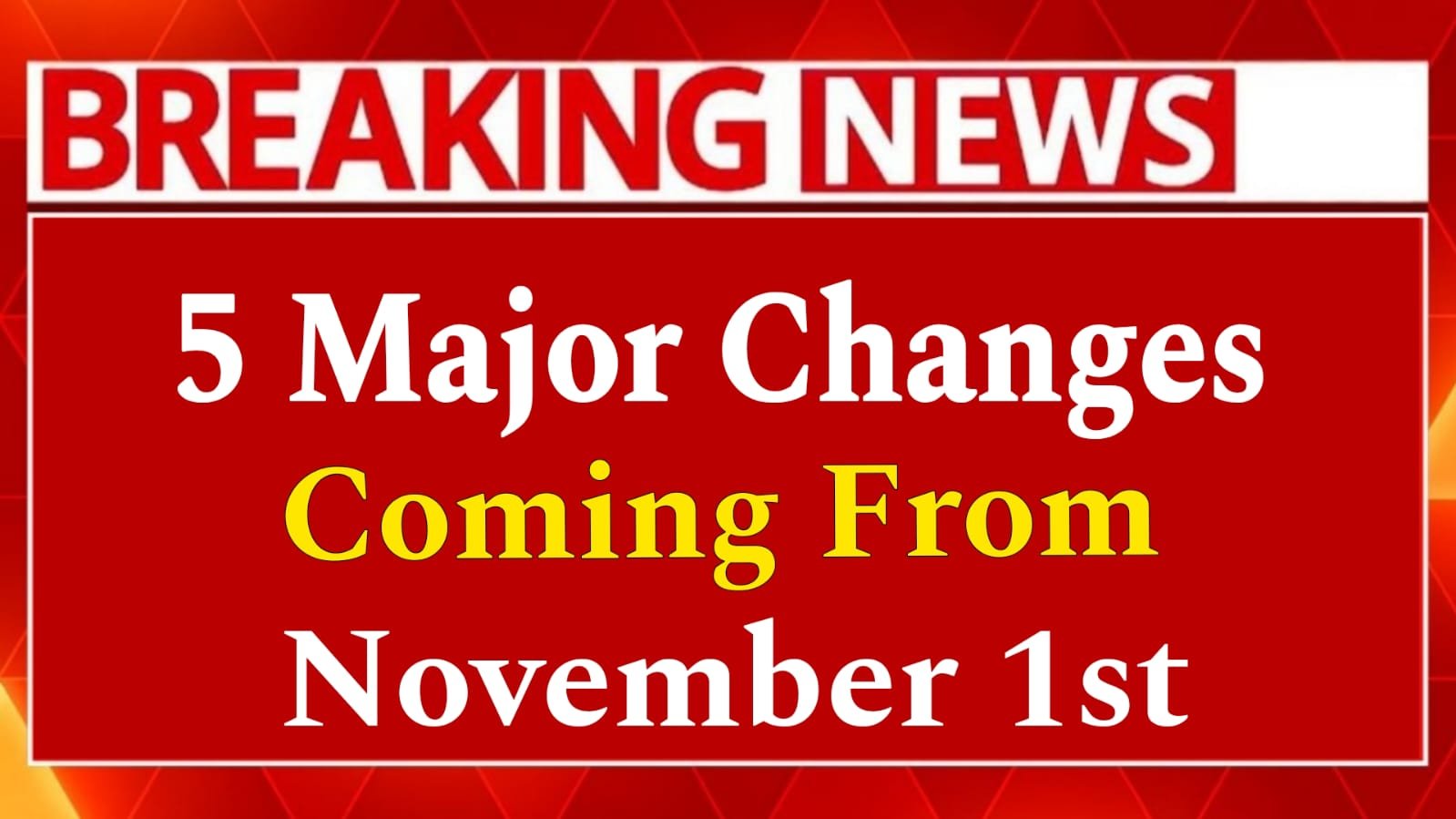New Rules Starting November 1st : Several important rules are set to change across India starting November 1, 2025, directly affecting your daily life, expenses, and financial activities. This article provides complete details about the key updates — especially those related to LPG prices, GST slabs, banking regulations, and restrictions on commercial vehicle entry in Delhi.
Introduction : Why Are These Changes Important?
The government periodically introduces new rules to enhance public convenience, safety, and economic stability.
This time, the focus is on common citizens, small businesses, and consumers, ensuring smoother processes and fairer systems.
Considering rising inflation, growing digitalization, and environmental concerns, the government has taken significant steps to improve banking, taxation, and transport regulations.
Below are the major updates, their effective dates, and how they will impact you.
Top 5 Major Changes Effective from November 1, 2025
November 1 is a key date when multiple government-notified rules will take effect. The primary areas of change include banking, GST, LPG, transportation, and nomination regulations.
1. Major Overhaul in GST Slabs
India will now have only two main GST slabs — 5% and 18%.
Previously, items were taxed under 5%, 12%, 18%, and 28% categories. The 12% and 28% slabs are now abolished.
Key Impacts:
- Essential goods such as packed snacks, rice, pasta, and instant noodles will become cheaper.
- MSMEs will benefit from a simplified tax system.
-
Luxury and sin goods (like high-end cars, tobacco, etc.) will now attract a 40% GST rate.
2. Banking and Nomination Rules Simplified
From now on, you can nominate up to four people for a bank account or locker — earlier, this number was limited.
Benefits:
- Easier process for customers to update nomination details.
- Improved transparency in bank locker and deposit operations.
-
Fewer inheritance and succession disputes related to accounts.
3. LPG Cylinder Price Revision
The price of commercial LPG cylinders has been increased by ₹15.50.
In Delhi, the new rate for a 19 kg commercial cylinder is ₹1,595.50.
However, domestic LPG prices remain unchanged.
Impact:
- Hotels, restaurants, and small businesses will face slightly higher operational costs.
-
Households will remain unaffected as domestic LPG prices are stable.
4. Strict Rules for Vehicle Entry in Delhi
Starting November 1, only BS-VI compliant, CNG, LNG, or electric commercial vehicles will be allowed to enter Delhi.
Impact:
- Older diesel and petrol goods vehicles will be banned.
-
The move aims to reduce pollution and promote environmental safety.
5. Easier GST Registration and Refunds for MSMEs
The government has simplified the GST registration and refund process for Micro, Small, and Medium Enterprises (MSMEs).
Benefits:
- Faster GST refunds and reduced paperwork.
- Greater transparency in tax filing and return submission.
-
Boost to MSME sector through streamlined compliance.
How These Changes Will Affect Your Pocket
- Reduced GST rates mean cheaper daily-use products and more savings.
- Simplified nomination rules make it easier to manage bank accounts and lockers.
- Restaurant and hotel bills might slightly rise due to higher commercial LPG costs.
- Transport costs in Delhi may change due to vehicle restrictions.
-
MSMEs will experience faster growth with easier compliance.
Key Points in Brief
- Only 5% and 18% GST slabs will remain.
- 40% GST on luxury and sin goods.
- Up to 4 nominees allowed per bank account/locker.
- ₹15.50 increase in commercial LPG cylinder price.
- Only BS-VI, CNG, LNG, or electric goods vehicles allowed in Delhi.
- Simplified GST registration and refund process for MSMEs.
- Domestic LPG price remains unchanged.
-
Nationwide implementation of the new GST process.
Official Sources of Information
All these changes are based on official notifications and announcements from various government bodies, including:
- 56th GST Council Meeting decisions.
- Notifications from the Central Board of Indirect Taxes & Customs (CBIC).
-
Official communications from the Ministry of Finance, Ministry of Petroleum, and Transport Authorities.



